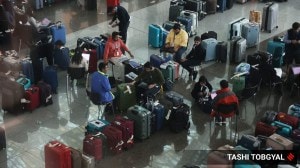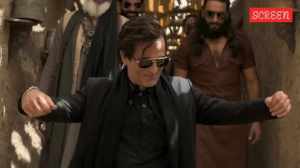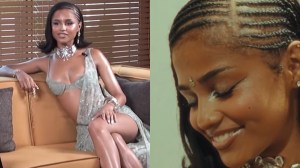On American Idol,shifts in power,not talent
Even as Ellen DeGeneres has joined the show,Simon Cowell is all set to leave. For Idol,which is unable to mint longstanding stars,it is the beginning of its twilight....
Effectively,this season of American Idol,the ninth,is the shows last. Simon Cowell,its godfather figure,responsible for dashing the ambitions of untold singers and for being the most visible advocate for music criticism in America,will leave after this years finale,in May,to prepare for the US debut of his own singing competition,The X Factor,next year.
In a recent conference call with members of the news media,he talked about what sort of winner hes hoping for this year. You want somebody who represents what is going on at the moment, Cowell said. Id love to find a Taylor Swift,somebody whos relevant,rather than just a contest winner.
It was characteristic Cowell straight talk,but also an implicit swipe at one of the problems facing Idol at the beginning of its twilight: its apparent inability to mint longstanding stars. Only two of the eight Idol winners,Kelly Clarkson and Carrie Underwood,have sustained long careers after kicking off the Idol training wheels. The show remains the gold standard for television juggernauts,but as talent scouting goes,its about average.
Of the 24 semifinalistsback to the shows normal number,down from 36 last yearseveral stand in a personal niche. Early favourites include two women,Haeley Vaughn,a teenage,black pop-country singer,and Crystal Bowersox,a husky-voiced folkie in the Indigo Girls vein. Lilly Scott is an eccentric jazzbo and John Park a clean-cut standards crooner. Even Tim Urban,the last-minute replacement for the disqualified semifinalist Chris Golightly (reportedly for having a recording contract),seems to have been moulded by listening to latter-day pop emo bands.
Any of these paths can end in pop success,but the most plainly relevant contestant this season is Andrew Garcia,a YouTube-era star in the making,one of thousands of people who for the last few years have been posting clips of their cover-song performances to the Internet in hopes theyd get noticed. In those clips,which still pepper YouTube,hes a clear adept,able to breezily disassemble and reformat popular songs for his limited vocal rangea recipe for modern Idol success. His version of Paula Abduls hit Straight Up during Hollywood week has been this seasons most memorable and thoughtful performance by far.
Last season,the songwriter Kara DioGuardi was brought on as a fourth judge,joining what had seemed like an impregnable trio: Cowell,Abdul and Randy Jackson. Abdul departed after last season,and her chair on the judging panel has been filled by the talk show host,actress and comedian Ellen DeGeneres,who signed a five-year contract to appear on Idol.
It must have been maddening for DeGeneres to have suffered the media swell that represented and assessed her as the new Abdul,when all along she probably understood that she was in fact the new Cowell.
My role on the show is somebody whos run a successful record label, Cowell said during the recent conference call. But hes also the reliable centre of sanitybefore DioGuardi was added to the panel,often he was the only person tethering the shows judging to logic. With Cowell moving out of the picture,DeGeneres is free to pick up his mantle. DeGeneres,heir apparent to Oprah Winfrey,has more clout than most record executives,or for that matter most record labels.
In the Hollywood round,DeGeneres was articulate and humorous,withering when she needed to be and completely polished in her casualness,the product of more than two decades of television experience. Made most vulnerable by DeGeneres arrival is DioGuardi,who when she joined the show immediately became the second most sensible member of the judging panel,and sometimes the first.
- 01
- 02
- 03
- 04
- 05































